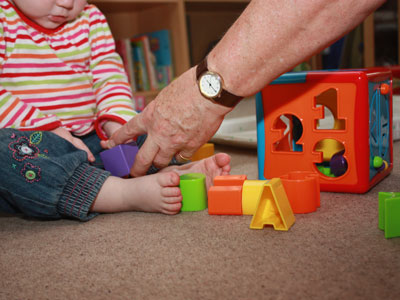
Councils will be given powers to outsource children’s services functions, including child protection, but only to non-profit providers, the government has announced.
The move is confirmed in the Department for Education’s (DfE) official response to its consultation on proposals to allow local authorities to delegate children’s services functions to third-party providers, with the exception of adoption and independent reviewing officer functions. Councils will be given the delegation powers under regulations introduced in Autumn of this year, the DfE said.
The government’s original plans – which were put out to consultation in April – would have allowed children’s services to be outsourced to any third party provider, including private firms. The DfE revised its stance and will now restrict delegation to not-for-profit organisations after the most common concern raised during the consultation was ‘the prospect of privatising children’s services’.
The government insists the new regulations will give local authorities the freedom to deliver services in new ways and will allow social workers to establish “specialist social work practices” focusing on issues such as female genital mutilation or teenage sexual exploitation.
More than three-quarters of the 1,315 respondents to the consultation said that they did not believe the proposals would give local authorities more freedoms and the vast majority (94%) of respondents said they disagreed with the original plans. More than a third of respondents (35%) were social workers.
Isabelle Trowler, the chief social worker for children, said the new regulations offered social workers the chance to innovate.
“As a profession we have talked for years about the need to be more in control of our professional practice. These new freedoms to encourage innovation give us a great opportunity to do just that in partnership with local government. We now need to be fully engaged in this reform agenda and respond positively to these freedoms by helping local authorities redesign services in ways that respond to the voices of children and families who use them,” she said.
The College of Social Work had warned the government against introducing a “profit motive” to child protection in its response to the consultation.
Responding to today’s announcement, Jo Cleary, the College’s chair, said: “We are pleased that the concerns of our members about how risk would be managed in a profit-making environment have been heard. Our members feel very strongly that there should not be any fragmentation of responsibilities where there are high risks to children and young people. Social workers will want to have confidence as to their professional accountabilities if functions are delegated to any other organisation.”
Ray Jones, professor of social work at Kingston University and one of a group of social work academics who voiced serious concerns about the original plans, said: “It’s good that the government has listened [on the concerns around privatisation]. There was substantial public and professional concern about the prospect of services being opened up to the private marketplace.”
Jones said that he still had concerns over how any non-profit providers would be regulated in the new system. The DfE has said that local authorities will remain legally accountable for children’s services and held to account by Ofsted for the quality of services “however they are delivered”.
Jones said: “We’re still talking about key statutory and government responsibilities for the protection of children being delegated to independent organisations where they will only be overseen via a remote contract relationship. I think many social services directors will have concerns about their organisation being rated on the performance of others when those contracted providers won’t be inspected in their own right.”
David Niven, an independent social worker and ex-chair of BASW, said: “I’m glad that the government is not allowing the private sector to be involved. If the profit motive had come into this it would have put a whole new spin on things. We’ve seen with adults residential care how catastrophic things can happen when profit is put before people.
“My personal view is that this will come down to who holds the sanction in terms of inspection and monitoring these providers. How fast can something be removed from any provider if they’re proved to be not functioning properly or in the interests of children.”


 A trauma-informed approach to social work: practice tips
A trauma-informed approach to social work: practice tips  Problem gambling: how to recognise the warning signs
Problem gambling: how to recognise the warning signs 




 Find out how to develop your emotional resilience with our free downloadable guide
Find out how to develop your emotional resilience with our free downloadable guide  Develop your social work career with Community Care’s Careers and Training Guide
Develop your social work career with Community Care’s Careers and Training Guide  ‘Dear Sajid Javid: please end the inappropriate detention of autistic people and those with learning disabilities’
‘Dear Sajid Javid: please end the inappropriate detention of autistic people and those with learning disabilities’ Ofsted calls for power to scrutinise children’s home groups
Ofsted calls for power to scrutinise children’s home groups Seven in eight commissioners paying below ‘minimum rate for home care’
Seven in eight commissioners paying below ‘minimum rate for home care’
 Facebook
Facebook X
X LinkedIn
LinkedIn Instagram
Instagram
Comments are closed.